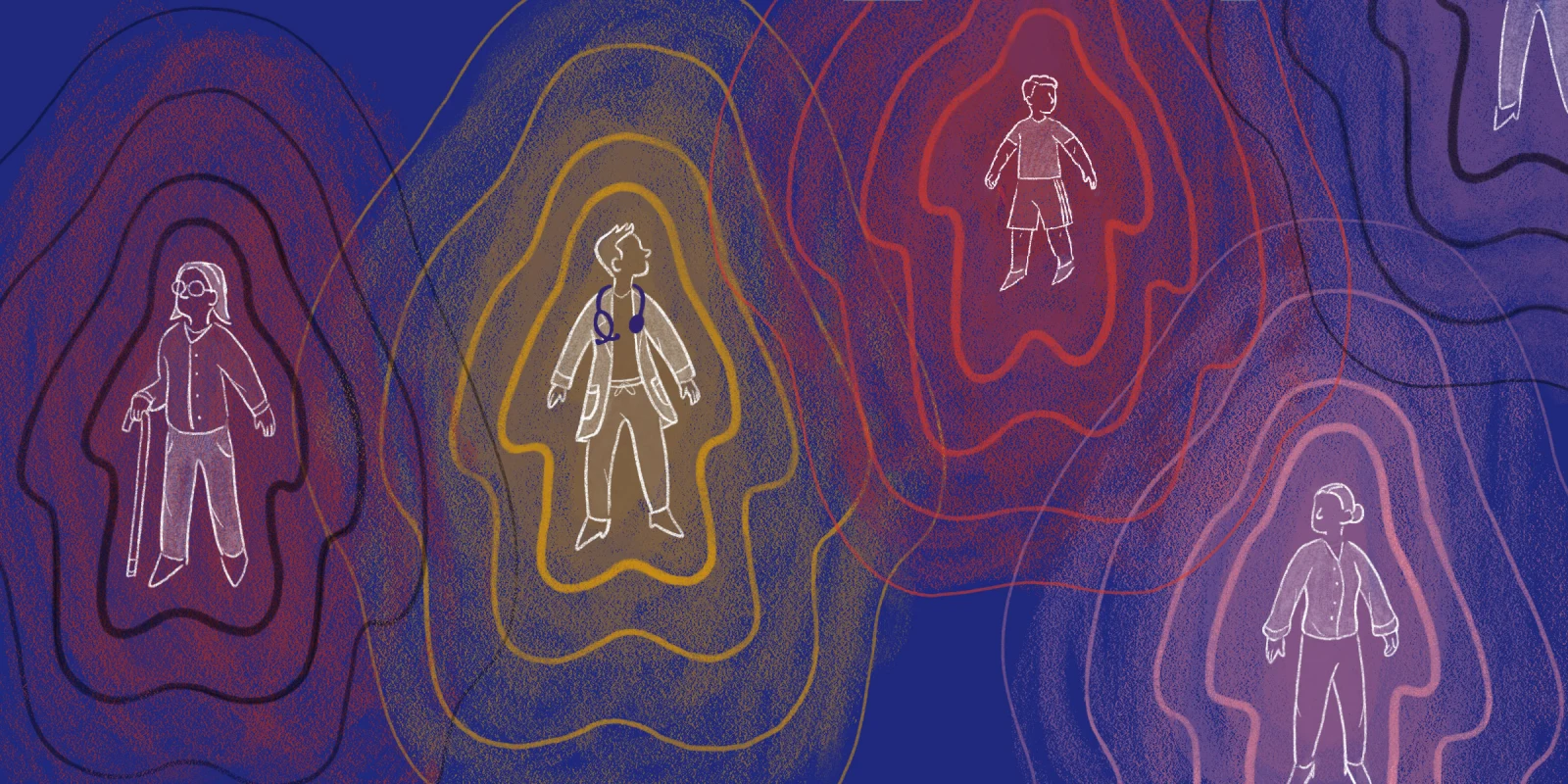“Are you OK, dad?”
I was not.
I was in the front yard throwing the baseball with my 6-year-old son, Milo, when everything started to spin. The nausea was coming on. The sweating. The inner sense of panic.
I once heard somebody say that Ménière’s disease doesn’t kill you, but you sometimes wish that it would. Over time this has made more and more sense to me. It’s a nasty disease.
Ménière’s can show up in many different ways and degrees of severity. Hearing loss. Tinnitus. A sensation of fullness. Vertigo episodes. For me it‘s been all of them, though the vertigo is undoubtedly the worst. My vertigo episodes come out of nowhere and typically last for an hour or two. All I can do is lie down, face down on the floor, preferably near a toilet, and wait out the misery.
This episode in the front yard was especially unfortunate. My wife and I have four young boys, and while we both try to arrange one-on-one time with each of them it never seems to be enough. Milo had been asking to throw the ball with me all afternoon, and here we were, finally together. We were throwing and talking and life was good. Until it wasn’t.
“Can I get you anything?” he asked as I sat down on the sidewalk.
“No, thank you, buddy, I just need a few minutes.”
“It’s OK if you need to stop,” he said.
This surprised me. He’d been looking forward to throwing all afternoon and I thought for sure he’d put up a fight when I tried to take a break. But he seemed to understand.
“What does it feel like? Like, what is happening right now?”
He’d seen me go through vertigo episodes before, but this was the first time he’d asked me that. And he wasn’t just being polite. He was sitting beside me, looking into my eyes, and he seemed to genuinely want to know what I was experiencing. I tried to explain the sensation of vertigo to him. I got the sense he didn’t completely understand, but he seemed satisfied enough with the answer.
“Daddy, I wish I could be the one who was sick and that you could feel better.”
I thought about that conversation a lot that day. I’ve thought about it nearly every day since.
I’m very lucky to have a great support system in my life. I have people I can talk to and people there to help if I need them. My wife is always supportive. I have good doctors taking care of me. And yet, through it all, I felt more comfort from this conversation than I have from just about anything else. I’ve spent a lot of time thinking about why that is.
As a general pediatrician, I spend my days listening to the questions and concerns of children and their parents. I try to answer questions and to help fix problems when they come up. But, as we all know, there are some questions that don’t have clear answers, and there are some problems that can’t easily be fixed.
Ménière’s is a good example, a strange and poorly understood disease process. There are treatment options, of course, ranging from dietary changes to oral medications to surgical procedures. Some patients are lucky and have good success with at least one of these. If you talk to enough people with Ménière’s you will discover that many do not. It can easily become disheartening. There is often no easy fix.
I recall, throughout my training, learning about the importance of listening to the patient, and of demonstrating empathy. Even if we don’t have the answers, or a clear solution to a problem, we can still provide comfort. We can listen. We can share an experience.
It’s still fascinating to me that Milo was able to do this better than I ever have been.
Milo listened to me. He asked me an open-ended question, looked me in the eye, and waited for my response, leaving space for me to talk. He genuinely wanted to know my answer. He didn’t have any answers for me. He’s 6. But he was there with me. In it. And every time I‘ve thought about this interaction I’ve felt a little bit better.
I’m still struggling with Ménière’s disease. I may be struggling with it for the rest of my life. But it did bring me this interaction with my son, and it’s made me want to be a better doctor every day since.
What lessons have you learned from the children in your life? Share in the comments!
Dr. Sam Cross is a general pediatrician in Virginia. He spends most of his time outside of work wrestling with his four sons.
Illustration by Diana Connolly






